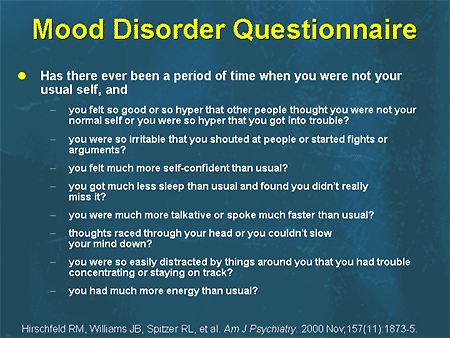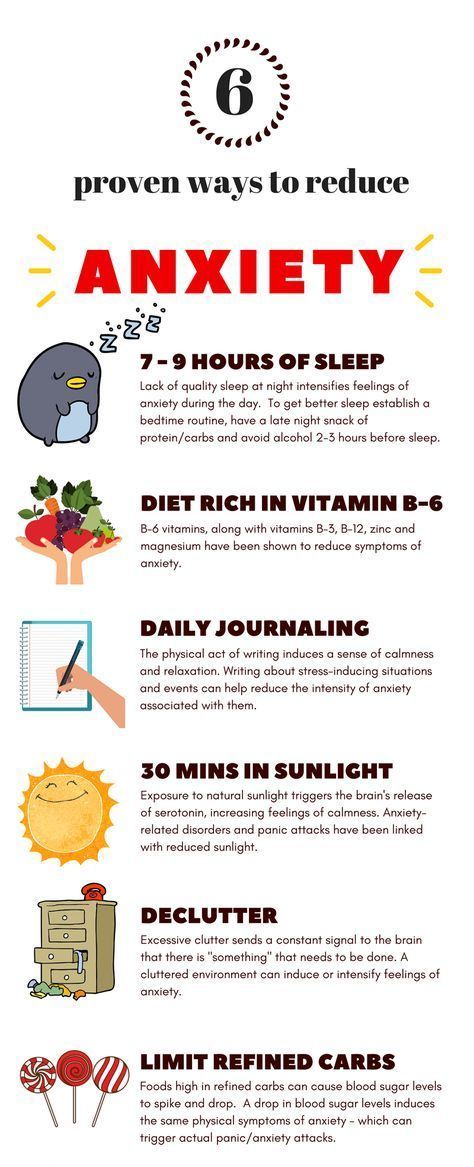Intimacy issues in relationships
Resolving intimacy problems in a relationship
Intimacy is the ‘connectedness’ between two people. A problem with (or a lack of) intimacy may indicate a problem with the relationship.
- Dealing with intimacy problems in a relationship
- Common reasons for intimacy problems in a relationship
- Restoring intimacy in a relationship
Connectedness with other people is one of the basic needs of almost every person on the planet. This includes closeness with friends, family, a peer group, and of course closeness to another person in a relationship.
Intimacy in a relationship (an interpersonal relationship, to use a clinical term) is the breadth of things like love, physical contact, trust and closeness that is shared with another person.
“Intimacy is both emotional and physical, meaning it can be sexual and non-sexual.”
Intimacy is both emotional and physical, meaning it can be sexual and non-sexual. It is one of the most important aspects of a relationship because it is a fundamental ingredient of the ‘glue’ that binds people together.
Dealing with intimacy problems in a relationship
Intimacy is a lot more than just touching, kissing or holding hands. Intimacy is also the extent to which someone (hopefully) knows the other person ‘inside out’, as well the extent of such concepts as trust, commitment and understanding.
Intimacy is the ‘connectedness’ between two people. This means that when there is a problem with (or a lack of) intimacy), it may indicate a problem with the relationship.
Common reasons for intimacy problems in a relationship
A lack of intimacy in a relationship may occur for a whole range of reasons. Sometimes they may be interconnected. Here are some of the most common.
1) Lack of communication
As mentioned, intimacy covers so much more than just physical contact. In fact, much of the emotional closeness between two people depends on how comfortable they feel when communicating.
In fact, much of the emotional closeness between two people depends on how comfortable they feel when communicating.
In order for two people to really know each other, communication needs to be open, transparent, honest and effective. Good communication is as much about effective listening as it is about putting things into words. For example, if one person is traditionally more ‘closed’ then they may need to work on strategies to be more open — while the other person may also need to be mindful and provide more space.
A breakdown in communication means there is a disconnect from which conflict can result (for example, one person saying “you never listen” or “I don’t feel like you understand).
2) Depression, anxiety or other mental illness
A mental health condition like depression or anxiety can affect a person’s outlook or perception of the world around them. It can even affect how someone feels about their partner or spouse (or rather, how they believe their partner sees them).
A mental illness can also inflate stressors in life which can cause minor issues to ‘blow up’ out of proportion. For example, a person who is feeling highly anxious or depressed may ‘lash out’ at their partner when faced with stressful situations like a difficult family gathering or a bad day at work. A person with poor self-image or low self-esteem may also have difficulty with intimacy (for example, they may feel self-conscious or feel excessively vulnerable).
3) Resentment, anger or mistrust
Arguments and disagreements are a normal part of most relationships. However, those feelings generally pass and are resolved relatively quickly. Consider whether persistent negative feelings like anger or jealousy are interfering in intimacy or are becoming a feature of a relationship (rather than unexpected incidents). If so, there will likely be a motive and underlying cause that needs to be identified and understood.
4) Having children
What could be more representative of intimacy than having children together?
Even so, being a parent is also one of the toughest jobs in the world. Ask any new parent and they’ll probably tell you that feeding, cleaning up mess, getting kids to sleep and the countless other tasks involved in parenting don’t leave much time or energy for other things. It’s also possible that, with so much time and energy focussed on children, the result could mean little time for doing the same for the other person.
Ask any new parent and they’ll probably tell you that feeding, cleaning up mess, getting kids to sleep and the countless other tasks involved in parenting don’t leave much time or energy for other things. It’s also possible that, with so much time and energy focussed on children, the result could mean little time for doing the same for the other person.
Although kids are a natural consequence of the wonders of intimacy, they can, in some cases, inadvertently contribute to less intimacy in a relationship.
5) Job or other out-of-home commitment
A fulfilling job is an important part of remaining happy. When more than half your waking weekday hours are spent in a certain location or around particular people, it’s obviously beneficial if you can feel fulfilled.
Most people want to do well and desire to fulfil their ambition. Some people, however, are so heavily career-focussed that it can get in the way of closeness. For example, talking to a partner excessively about work, being away from home, having little time or energy after working long hours, or work interfering in ‘personal time’ (like checking work emails in bed) can all contribute to a lack of intimacy in a relationship.
Restoring intimacy in a relationship
As the saying goes, it takes two to tango. Resolving intimacy issues very often requires both people to be open, honest, considerate and non-judgmental. It also may require one or both people to allow themselves to feel ‘vulnerable’. Here are some ways to get things started.
1) Work on your communication skills
Talking about problems is very often one of the best things you can do. By talking about concerns and worries, a couple may be able to ‘get things out in the open’. Be mindful that effective communication is a two-way street — it is as much about listening as it is about talking.
2) Work on resolving conflict
It’s much easier to feel close and connected to someone when you haven’t had an argument or heated disagreement. The capacity to calmly manage feelings of anger and frustration is a key to restoring intimacy.
3) Do activities together
To use another popular saying, the couple that plays together, stays together. Find interests that you both enjoy (it doesn’t have to be an expensive restaurant or night out, as it could even be just walking the dog together) make plans and, most importantly, stick to them.
4) Talk to a relationship counsellor
Couples’ counsellors, also called relationship counsellors, work to help people overcome conflict. Unfortunately, they often see couples only after it’s too late. Seeing a relationship counsellor before problems become unmanageable is a proactive, effective step that can improve a relationship.
5) Talk to a MensLine counsellor
Did you know that MensLine Australia was originally founded as a relationship advice line? Although the service’s scope has expanded significantly over the years, a huge proportion of people who contact MensLine Australia still do so to talk about relationship issues. Counsellors are available 24 7 if you just want to talk or chat online.
Counsellors are available 24 7 if you just want to talk or chat online.
MensLine Australia is available 24 hours a day, seven days a week, with professional counsellors providing information and support for all relationship issues.
Call us on 1300 78 99 78 or access online counselling.
More from relationship advice for men
FilterCommunicationFamilyFriendshipIntimacyMythsProviding supportSame-sexSelf-helpSignificant days
Ten ways to become a better partner
Relationships are at the core of our lives. In a positive relationship, both partners feel valued, loved and nurtured. Here MensLine Australia gives you 10 tips to get the most out of your relationship.
Read more
Ten ways to become a better partner
Relationships are at the core of our lives. In a positive relationship, both partners feel valued, loved and nurtured. Here MensLine Australia gives you 10 tips to get the most out of your relationship.
In a positive relationship, both partners feel valued, loved and nurtured. Here MensLine Australia gives you 10 tips to get the most out of your relationship.
Read more
Social connections - past, present and future
We often talk about the power of connections and support networks, as having a strong circle of people around you is one of the single most beneficial ways to maintain your mental health. Here’s how you can grow social connections from the past, present and future!
Read more
Reconnecting with friends
Never have we been more connected to everyone around us. Advances in technology have launched multiple social media platforms allowing us to be no more than just a few clicks away from connecting to someone, or anyone for that matter! Then why is it we’ve never felt more alone?
Read more
Resolving conflict
Conflict will happen from time to time in your life, but if you deal with it properly, it doesn’t have to be destructive. Here, MensLine Australia looks at the signs of damaging conflict and what you can do.
Here, MensLine Australia looks at the signs of damaging conflict and what you can do.
Read more
Active listening
Listening is an important part of effective communication. We have conversations throughout the day, but sometimes we’re not listening as well as we could.
Read more
Reconnecting with friends
Never have we been more connected to everyone around us. Advances in technology have launched multiple social media platforms allowing us to be no more than just a few clicks away from connecting to someone, or anyone for that matter! Then why is it we’ve never felt more alone?
Read more
Resolving conflict
Conflict will happen from time to time in your life, but if you deal with it properly, it doesn’t have to be destructive. Here, MensLine Australia looks at the signs of damaging conflict and what you can do.
Read more
Active listening
Listening is an important part of effective communication. We have conversations throughout the day, but sometimes we’re not listening as well as we could.
Read more
View more
Common Intimacy Issues And How To Deal With Them
Updated November 16, 2022 by ReGain Editorial Team
Romantic relationships involve physical and emotional interaction. For some people, intimacy is easy. For other people, it can trigger thoughts and behaviors that make intimacy uncomfortable. There are intimacy disorders that cause issues in close relationships. There are also many intimacy issues that are not rooted in phobias or related to disorders.
Some intimacy problems surface when a couple becomes sexually active. Some problems surface when a couple experiences emotional closeness. Some couples begin to experience intimacy issues as they mature, which can be due to health problems or emotional and mental health concerns.
Regardless of the severity of the problem, there is help. Sometimes, learning about common intimacy issues can help individuals and couples work through their problems. For example, you may find that a medical exam reveals health problems that are wreaking havoc on your sex life. Or, you may be in a season of depression or anxiety that negatively impacts your relationship. Finding a qualified therapist or couples counselor can help put intimacy problems into perspective and help you and your partner find the answers and make changes to better the relationship.
Intimacy Issues Affecting Your Life?
Change Is Possible - Click Here to Learn More.
Fear Of IntimacyFear of intimacy can be a social phobia. Intimacy issues may stem from an anxiety disorder that makes it difficult to form close, intimate relationships. Many people with a fear of intimacy resist close relationships, even in their own families. This disorder is related to adult attachment theory. There are many causes of this issue including childhood sexual abuse or similar traumas. For some people, the risk factors for a fear of intimacy include family problems such as experiencing enmeshed family dynamics or having a family that is overly critical or neglectful.
There are many causes of this issue including childhood sexual abuse or similar traumas. For some people, the risk factors for a fear of intimacy include family problems such as experiencing enmeshed family dynamics or having a family that is overly critical or neglectful.
People who struggle with a fear of intimacy have difficulty believing they are worthy of love and sex -- mindblowing sex -- and avoid others out of fear of rejection. These symptoms can range from slight to severe and impede an individual's ability to form lasting intimate relationships.
Dealing with a fear of intimacy requires more than an understanding of the disorder. This problem can make it difficult to form a relationship with a therapist, which may be essential for overcoming this issue. The first step is to find a therapist or psychologist. Talk Therapy is one type of therapy that may be introduced. If the problem is more demanding, medications may be used to help calm the anxiety and make it easier to engage in talk therapy.
Social Anxiety Disorder
Social anxiety disorder can affect intimacy. The same thoughts, behaviors, and emotions that are related to social anxiety disorder can also sabotage relationships. Avoidant behaviors are one symptom of social anxiety that can cause intimacy issues. Intimate interaction is something that requires trust. The invitation to trust can create a feeling of vulnerability that is reminiscent of the feelings and thoughts that accompany social anxiety disorder. People with social anxiety also experience low self-esteem, which may prevent them from taking brave steps towards creating more meaningful relationships and experiencing intimacy.
The best way to keep social anxiety disorder from affecting intimacy is to seek help for the anxiety problem. Those who suffer from social anxiety are more likely to suffer from fear of intimacy too. It is important to utilize coping strategies such as working through negative thoughts and emotions as they surface. Avoidance is one of the main behaviors that stem from anxious thoughts about rejection or fear of vulnerability.
Avoidance is one of the main behaviors that stem from anxious thoughts about rejection or fear of vulnerability.
The best way to deal with these anxious thoughts and emotions is to work to recognize them for what they are; they are based on fear not reality. Sabotaging behaviors often come from fear, and you must know how to stop sabotaging relationships. A good therapist can help by talking through negative thoughts and emotions as they surface.
Connecting with a qualified therapist can be a vital step in overcoming social anxiety disorder and other intimacy issues. Individual and couples counseling are both forms of therapy that may help. Researchers at the Mayo Clinic found that most people with social anxiety disorder found improvement through psychotherapy and talk therapy. Whether you find a local counselor or an online counselor, this may be the right approach for you or your partner.
Intimacy AvoidanceIntimacy avoidance is a behavior that makes it difficult to create or maintain a healthy intimate relationship. One of the main reasons an individual develops avoidance behaviors is childhood trauma, abuse, and neglect.
One of the main reasons an individual develops avoidance behaviors is childhood trauma, abuse, and neglect.
Adults with love avoidant personality disorder, social anxiety disorder or fear of intimacy disorder almost always engage in intimacy avoidance when relationships become serious They manifest fear of getting close to someone. Symptoms of intimacy avoidance can be as simple as working late to avoid intimacy with a partner or as severe as avoiding intimate relationships altogether. Dealing with intimacy avoidance anxiety begins with recognizing the symptoms and finding help.
Intimacy avoidance defaults to isolation. It is important to find a therapist and work with them to learn about the symptoms and work toward changing the behavior itself. There are many therapies designed to address avoidance behaviors, and they are very successful. Finding the right therapist is the first step to facing intimacy avoidance and finding happiness.
Negative Body Image And Intimacy
A negative body image may indicate a disorder called Body Dysmorphic Disorder. This can accompany or exist alongside anxiety disorders. Whether it is a full-fledged condition or simply personal insecurity, a negative body image can undermine intimate relationships. Body image is a personal perception of one's own body and it affects how an individual perceives their sexual attractiveness.
This can accompany or exist alongside anxiety disorders. Whether it is a full-fledged condition or simply personal insecurity, a negative body image can undermine intimate relationships. Body image is a personal perception of one's own body and it affects how an individual perceives their sexual attractiveness.
A positive body image is something everyone would love to have, but the modern ideals of attractiveness are not easy to achieve. Ultra-thin models are only one part of the modern portrayal of sex appeal. Digital enhancement makes changes that no real person can achieve. Comparing our bodies to an unattainable standard damages more than the ability to feel comfortable in our skin. Digital manipulation can distort definitions of normalcy and trigger eating disorders and other mental health issues.
It can be difficult to enjoy intimacy with a negative body image. This may manifest in infrequent sex and unsatisfying sexual encounters. Intimate relationships can fall apart or never take off at all if a negative body image interferes.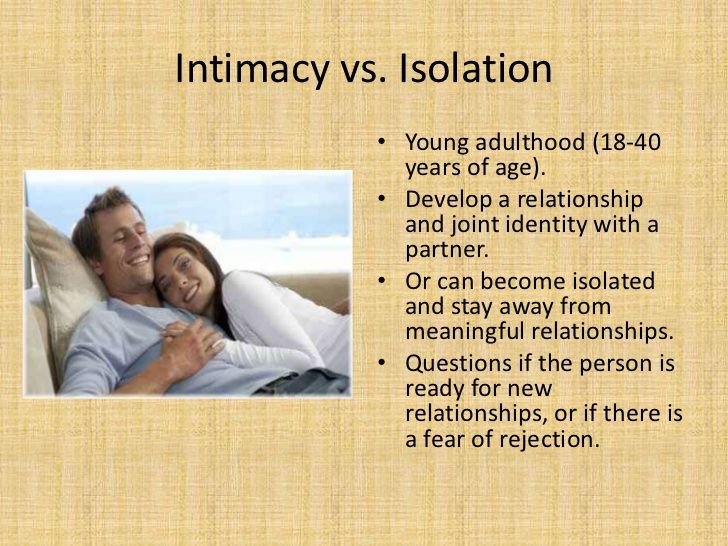 Keeping an intimate partner at a distance or ignoring their sexual advances can destroy a relationship. Instead, try to talk about your thoughts and innermost feelings. Talking about how negative body image interferes with intimacy allows both partners to understand avoidance behaviors and find ways to overcome the problem.
Keeping an intimate partner at a distance or ignoring their sexual advances can destroy a relationship. Instead, try to talk about your thoughts and innermost feelings. Talking about how negative body image interferes with intimacy allows both partners to understand avoidance behaviors and find ways to overcome the problem.
Body Dysmorphic Disorder (BDD) is a treatable condition. Talk therapy is one successful method used for people who struggle with BDD. Numerous therapists specialize in treatment methods for this kind of condition.
Sexual Performance Anxiety
Sexual performance anxiety is one source of intimacy issues. Some health problems impact sexual performance. These included:
- Diabetes
- Heart issues
- Vascular issues
- Neurological disorders
- Chronic diseases
- Kidney or liver failure
- Hormonal imbalance
- Substance abuse
- Alcoholism
Ignoring health problems and performance problems generates more stress and anxiety over the issue, which can lead to more performance-related issues.
At the first sign of performance problems, discuss it with your partner and make an appointment with your healthcare provider. Ignoring the problem and letting it spiral out of control can take a toll on intimate relationships. Sometimes partners blame themselves for the performance problem and this just adds another issue that must be dealt with. Talking with your partner will help you figure out what’s going on and alleviate your partner’s fears that it is their fault.
There are many things a doctor can do to help alleviate performance problems that are due to health-related issues. First, get an exam, and find out where the real problem lies. There is no reason to stress and worry over performance problems; finding and addressing the underlying health issues will make all the difference in the world.
Sexual Communication Issues
Intimacy Issues Affecting Your Life?
Change Is Possible - Click Here to Learn More.
Many people are uncomfortable talking about sex with partners. Experts say that both new and long-term relationships have sexual communication issues. Sexual communication issues are can be a source of intimacy issues. Even if talking about sexual likes and dislikes is not a problem for one partner, the other partner may not be as comfortable.
Experts say that both new and long-term relationships have sexual communication issues. Sexual communication issues are can be a source of intimacy issues. Even if talking about sexual likes and dislikes is not a problem for one partner, the other partner may not be as comfortable.
Sexual communication can be more than a verbal exchange. You may use body language to express sexual desires. Body language is used every day to communicate with others without using words. Changing position, kissing, guiding, and caressing can also be used to communicate without words.
Learning to communicate sexually is a facet of self-help. Try reading a few self-help books to get advice on how to communicate about sex. Women should search out books written by men on how they deal with sexual communication issues and men should search for books written by women on the subject.
One great option is to invite a nonbiased professional into the conversation. A counselor is a mental health professional who is trained to help you communicate. When you encounter barriers you just can't overcome alone, it's time to get help. A ReGain counselor can help you as an individual or the two of you as a couple work through intimacy issues. Also, you find more information through their various social media accounts on Facebook, Instagram, and Twitter.
When you encounter barriers you just can't overcome alone, it's time to get help. A ReGain counselor can help you as an individual or the two of you as a couple work through intimacy issues. Also, you find more information through their various social media accounts on Facebook, Instagram, and Twitter.
Counselor Reviews
"Rhonda has been very helpful and consistent over the past few months as I worked through issues related to fear of intimacy. Her observations have shed light on aspects of myself that I took for granted, which I realize now are actually are holding me back and are in my power to change. I would gladly work with Rhonda again, and recommend her without hesitation."
"Emily is a very effective counselor in our very first call she drilled down and uncovered some of our intimacy issues and gave us a game plan to help resolve them. She's timely, easy to talk to, listens but also gives advice (which I've found uncommon with some professionals). We'd use her again and recommend her in a heart beat."
We'd use her again and recommend her in a heart beat."
Conclusion
There is no shame in struggling with intimacy issues. Many aspects of your past and present contribute to feeling the desire to be alone or to guard yourself from intimacy. This can lead to a lack of affection and intimacy in a relationship. If you or your partner is struggling in this way, reach out. Talking with a licensed counselor is the first step to recovering from intimacy-related issues. You can also learn more about ReGain through their social media account on Facebook.
Other Commonly Asked Questions
1. What are signs of intimacy issues?
2. What are examples of intimacy issues?
3. How do you fix intimacy issues?
4. What causes lack of intimacy?
5. Why is my partner not intimate with me?
6. How do I explain intimacy issues with my partner?
7. Can a relationship survive without intimacy?
8. How do you know when your partner is no longer interested?
9. How do you tell your partner you need more intimacy?
How do you tell your partner you need more intimacy?
10. How do you communicate with lack of intimacy?
FAQs (Frequently Asked Questions)
How do I know if I have intimacy issues?
You may be wondering if you have intimacy issues. Forming intimate relationships comes easy to some, and can be challenging to others. These problems are more common than you might think! If you fear intimacy, you’re not alone. These worries can cause relationship issues and lead to conflicts between intimate partners. Troubles with intimacy often stem from issues with attachment. Before we get into the causes of this fear, it’s crucial to discuss the types of closeness people have in relationships. There are a variety of types of intimacy and different fears for each connection. People fear intimacy at times because it exposes them to being hurt. No matter what the relationship, if you tell another human being your feelings and reject you, it stings. These sorts of problems could be the result of attachment issues, which is why you need to find out what they are.
The word intimacy means different things to different people. There is emotional intimacy, physical intimacy, sexual intimacy, and other forms of intimacy. If you struggle with intimacy, you may struggle with one of these types of intimacy or multiple intimacy issues. You will know that you experience fear of intimacy if you find yourself leaving or wanting to leave when a partnership gets serious and a particular way. For example, if you have a fear of intimacy that relates to physical or sexual acts, you may be tempted to leave a healthy relationship when things start to move to a place where you were engaging in physical intimacy. If you have a fear of intimacy that relates to emotions or commitment, you might be tempted to leave a relationship when things start to progress or the level of commitment to one another increases. That is one of the biggest fear of intimacy signs, wanting to leave when things start to get more serious or involved in a way that relates to your specific fear of intimacy. Another one of the common fear of intimacy signs is that you shut down when things start to get intimate. Fear of intimacy can lead to a strained partnership, so it is essential to address your concerns related to a fear of intimacy once you realize that it’s there. Don’t ignore these problems. There could be deeper issues going on, which need to be addressed in therapy. You may even try taking a fear of intimacy scale with a licensed therapist to see what your issues are.
Another one of the common fear of intimacy signs is that you shut down when things start to get intimate. Fear of intimacy can lead to a strained partnership, so it is essential to address your concerns related to a fear of intimacy once you realize that it’s there. Don’t ignore these problems. There could be deeper issues going on, which need to be addressed in therapy. You may even try taking a fear of intimacy scale with a licensed therapist to see what your issues are.
What causes fear of intimacy?
Many different things could cause a fear of intimacy. For some people, social relationships are complicated because of vulnerability. Close or meaningful relationships can be scary for some people. They’re afraid of getting hurt. Fear of intimacy is sometimes caused by things that happened in your past relationships. For example, if you got very close to someone and were deeply committed to them in the past, but they cheated on you, or the relationship became volatile, you may develop a fear of intimacy. Fear of sexual intimacy can stem from trauma, body image issues, or something else. Sometimes, fear of intimacy is also related to your attachment style. For example, if you have an avoidant attachment style, you might fear intimacy in your relationship. Regardless of the reason for your fear of intimacy, it doesn’t mean that anything is wrong with you, and if it’s addressed, it can be resolved.
Fear of sexual intimacy can stem from trauma, body image issues, or something else. Sometimes, fear of intimacy is also related to your attachment style. For example, if you have an avoidant attachment style, you might fear intimacy in your relationship. Regardless of the reason for your fear of intimacy, it doesn’t mean that anything is wrong with you, and if it’s addressed, it can be resolved.
How do I develop more confidence in intimate relationships?
Many people want relationships with deeper intimacy and less superficial feeling. We want to get to know people well. Intimacy and closeness are a wonderful part of human relationships. One of the best ways to develop more confidence in intimate relationships is first to be confident in yourself. Be confident in who you are as an individual. Think of how you would want your most respected and closest friend to be treated in a partnership, and apply that standard to yourself. Work toward body confidence or body neutrality by using cognitive reframing techniques when thoughts of poor body image enter your head if that is something that arises for you and relates to your fear of intimacy. Know that your body is not the problem and that anyone who is with you wants to be with you because they are attracted to you. If they treat you as though anything less is true, drop them. There is someone who will appreciate you for you.
Know that your body is not the problem and that anyone who is with you wants to be with you because they are attracted to you. If they treat you as though anything less is true, drop them. There is someone who will appreciate you for you.
Another thing that’s important to develop confidence in intimate relationships is to talk about it with your partner. You want a partner who is willing to communicate with you and support you in anything that you’re going through, including fear of intimacy. Remember that they can’t support you unless they know about your fear of intimacy, so don’t let it go unknown.
How do I talk about intimacy issues with my partner?
It can be scary to talk about the fear of intimacy with your partner. You might worry that they won’t understand how you feel. Remember that there’s a solid connection between love and intimacy for many people. However, it’s crucial to remember - If they don’t experience fear of intimacy themselves, they may not understand where you’re coming from initially. The good news is that, if you talk to them, they will most likely start to understand; fear of intimacy, or something that many people face. It is by no means abnormal. Initiating a conversation about fear of intimacy with your partner can be as simple as saying, “I have a fear of intimacy that stems from my past, and I want to break through it. I care about you and want to be emotionally, physically, and sexually intimate with you.” After you tell them, you can tell them what they can do to support you and what you are doing to address the problem. If you don’t talk about the fear of intimacy in a partnership, it could lead to relationship issues, because your partner might start to think that your fears or behaviors surrounding a fear of intimacy is because of them. Closeness and intimacy are essential in every relationship. The right partner will be receptive, communicative, and supportive as you go on a journey to resolve your fear of intimacy. It won’t necessarily develop right away.
The good news is that, if you talk to them, they will most likely start to understand; fear of intimacy, or something that many people face. It is by no means abnormal. Initiating a conversation about fear of intimacy with your partner can be as simple as saying, “I have a fear of intimacy that stems from my past, and I want to break through it. I care about you and want to be emotionally, physically, and sexually intimate with you.” After you tell them, you can tell them what they can do to support you and what you are doing to address the problem. If you don’t talk about the fear of intimacy in a partnership, it could lead to relationship issues, because your partner might start to think that your fears or behaviors surrounding a fear of intimacy is because of them. Closeness and intimacy are essential in every relationship. The right partner will be receptive, communicative, and supportive as you go on a journey to resolve your fear of intimacy. It won’t necessarily develop right away.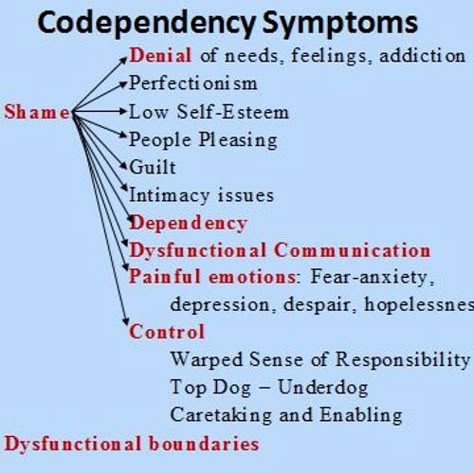 It’s possible to foster a sense of intimacy over time if you work towards that goal with your partner.
It’s possible to foster a sense of intimacy over time if you work towards that goal with your partner.
What Are Signs of Intimacy Issues?
There are several signs that you have intimacy issues. What it is important to understand is why you are having trouble in the bedroom when it is an uncommon occurrence. Here are several signs of a fear of intimacy:
- You’re uncomfortable around and emotionally detached from your partner. If you are in a type of relationship where you are just friends, or you do not have an emotional connection, you may want to avoid physical contact. This is not to say that you do not like the person; you just do not have a sexual or emotional bond. This can lead to intimacy issues if the other person gets a little too close; you are not in the same place as they are or do not want a romantic relationship.
- You had let your partner down when they counted on or needed you. If you were not available during a time when your partner needed you, there may be a lot of guilt that you are experiencing.
 These thoughts and ideas may plague you. While you still may have positive emotions for your partner, you may be experiencing an inability to engage in sexual relations until you can talk out your feelings
These thoughts and ideas may plague you. While you still may have positive emotions for your partner, you may be experiencing an inability to engage in sexual relations until you can talk out your feelings - You have never had a long-term relationship or tend to have just short-term relationships. Adult relationships can last for a weekend or years. There is no timeline on how long you should be in a personal relationship; if you are not with the right person, the sexual chemistry can die off quickly. From there, you are left with nothing else to give your partner. If you are concerned that you jump from one relationship to another, you may want to explore why. If you have a fear of loss, difficulty trusting others, negative childhood experiences, or deep-seated trauma, you may wish to discuss these issues with a therapist. If you just enjoy physical contact, but get bored after a short time, maybe you have a diagnosable condition, such as sex addiction ADHD, bipolar disorder, or some other type of mental health condition.
 There could also be absolutely nothing wrong with you. Long-term relationships may just not be your thing.
There could also be absolutely nothing wrong with you. Long-term relationships may just not be your thing. - You don’t want to commit to one relationship only. If you are young and enjoy playing the field, it is okay not to want to be in a committed, positive relationship. There may be reasons for not wanting to settle down. Examples include fear of attachment, fear of vulnerability, history of sexual abuse, history of physical abuse, or your role models growing up may have offered you negative attitudes about having a single sexual partner. You might enjoy physical contact but not have one exclusive or positive relationship.
- You avoid physical intimacy with your partner after a short amount of time dating. Fear of intimacy signs can be included in this point. If you were a victim of sexual abuse or have a fear of abandonment issues, it might be hard to have physical contact with another person. Mental health specialists find intimacy issues to be a high-ranking after effect in sexual assault patients.
 If you continue to have a hard time being intimate with your partner because of childhood experiences, you should see a mental health therapist. They can help you work through the bad experiences so that sex and intimacy are considered a good experience. If you are more comfortable having sex with someone you do not know well or at all, fear of abandonment issues are a common causation for why getting too close to someone is not ideal for you. If you
If you continue to have a hard time being intimate with your partner because of childhood experiences, you should see a mental health therapist. They can help you work through the bad experiences so that sex and intimacy are considered a good experience. If you are more comfortable having sex with someone you do not know well or at all, fear of abandonment issues are a common causation for why getting too close to someone is not ideal for you. If you - If you have never had a positive relationship, you might find that you just do not know how to have a good loving relationship with others. While you want physical contact and enjoy sex, you don’t or can’t let anyone get too close. If this is the case, you should discuss your fear of intimacy signs with a mental health therapist.
- You are not sure your partner is the right person for you. If you are not sure that you want to be in a committed relationship with your partner, you may experience intimacy issues. Perhaps your partner has a mental illness, and they do well when they stick to their diagnosis treatment, but when they don’t, they are hard to be around.
 Those with substance abuse issues can also cause turmoil in your life, and you may not see a long future with them. It is critical of a partner to be emotionally as well as sexually attractive. If you cannot see someone as a good fit emotionally and sexually because they have a substance abuse issue, you may need to leave the relationship. Often times overcoming a fear of being alone is easier than being with someone who will not stay on a diagnose treatment plan or is a drug addict.
Those with substance abuse issues can also cause turmoil in your life, and you may not see a long future with them. It is critical of a partner to be emotionally as well as sexually attractive. If you cannot see someone as a good fit emotionally and sexually because they have a substance abuse issue, you may need to leave the relationship. Often times overcoming a fear of being alone is easier than being with someone who will not stay on a diagnose treatment plan or is a drug addict.
How Do You Fix Intimacy Issues?
Talking to your partner is a good first step to fixing intimacy issues. If you are unsure of what physical contact will be with a new partner, discuss it. If you cannot talk openly to someone about sex and intimacy, you most likely are not in a place where you should be having sex. Fear of intimacy signs suggest that open conversations are the first steps to fixing intimacy problems.
What Are The Four Types of Intimacy?
- Emotional intimacy: You are attracted to them on a personal level.

- Mental intimacy: You love the compatibility you have with them on a psychological level. This may not include sex.
- Spiritual intimacy: You both experience a deep spiritual connection with one another and are intimate with one another on a spiritual level. This may not include sex.
- Physical intimacy: You are in a sexual relationship with someone you care about deeply.
Why is Intimacy So Difficult?
Intimacy can be effortless if you are with the right person. However, if you have social phobia, a commitment phobia, or other mental health conditions, you may find that intimacy is difficult.
Intimacy can also be hard if you have a fear of vulnerability with someone. Overcoming your fears is more important than physical contact. Once you work through them, however, intimacy can slowly get more natural and more enjoyable.
What Does Lack Of Intimacy Do To a Person?
Lack of intimacy can create fictitious attachment styles. You may feel that you have not been intimate for so long that no one finds you sexually attractive. This, most likely, is not the case. If you find that you are confused about the lack of intimacy you have been experiencing, you may want to talk to a therapist to figure out the reasons. Maybe work is a high priority for you, and you do not have time to date, or perhaps you just moved to a new state, and you do not know anyone except your coworkers.
You may feel that you have not been intimate for so long that no one finds you sexually attractive. This, most likely, is not the case. If you find that you are confused about the lack of intimacy you have been experiencing, you may want to talk to a therapist to figure out the reasons. Maybe work is a high priority for you, and you do not have time to date, or perhaps you just moved to a new state, and you do not know anyone except your coworkers.
What Is Intimacy To a Man?
Intimacy to a man is different for everyone. Some men use the words sex and intimacy interchangeably, while others understand that sex without a physical or emotional connection lacks intimacy.
Can Intimacy Be Restored?
As long as intimacy did not die because of a trauma or permanent, severe mental health condition, intimacy can typically be restored. For example, if a couple suffers a terrible miscarriage, they may have a hard time being intimate because they do not want to go through that type of pain again. Yes, in time, intimacy can be restored, but it should never be rushed or forced upon someone. That is not being intimate.
Yes, in time, intimacy can be restored, but it should never be rushed or forced upon someone. That is not being intimate.
What Lack Of Intimacy Does To a Woman?
Some women are perfectly content to have a lack of intimacy in a relationship. If she is in a great sexually charged partnership, there may be no emotional or intimate connection with her partner or partners. Some women may also have zero sex drive and decide they want to remain single, with no intimate connections. For whatever reason, this is her choice, and as long as she is happy, that is all that matters. However, for other women, being intimate with someone is a necessity. Just like some men crave sex and intimacy, the same can be true for some women.
What Does Lack Of Intimacy Mean?
Lack of intimacy means that there is no emotional or sexual chemistry. You can have sex without being intimate. However, if you want to be in an intimate and in a sexual relationship, but you are not able to achieve that with your current partner, perhaps it is best to part ways.
What are signs of intimacy issues?
Fear of intimacy signs can include but aren't restricted to serial dating or a series of many short term relationships, attachment issues, difficulty trusting other people, or pulling away when others start to get close. Someone with a fear of intimacy might experience avoidant attachment or have an otherwise insecure attachment style. They may describe themselves as having "commitment phobia," or others may notice that this is the case. Other fear of intimacy signs might include trouble discussing emotionally vulnerable topics, feeling as though one is too much, and difficulties with self-esteem in some cases. Fear of intimacy can hold people back from healthy, life-enhancing social relationships, which is one reason as to why it can be so crucial to address. Remember that you're not alone if this is something you experience.
How do you fix intimacy issues?
A therapist can be incredibly helpful in helping individuals develop trust and get to a place where they can break old patterns that relate to intimacy issues. For example, if someone wants to pursue a committed relationship but tends to go for short term relationships - perhaps, those that won't work long-term - due to fear of intimacy, this could be a pattern they want to break. Many people who fear intimacy or have difficulty trusting other people enough to have a truly intimate relationship want an intimate relationship despite their fear.
For example, if someone wants to pursue a committed relationship but tends to go for short term relationships - perhaps, those that won't work long-term - due to fear of intimacy, this could be a pattern they want to break. Many people who fear intimacy or have difficulty trusting other people enough to have a truly intimate relationship want an intimate relationship despite their fear.
What causes lack of intimacy?
Just as fear of intimacy may stem from various experiences or sources, there are many potential causes of lack of intimacy in a relationship. There are also many things that can lead to difficulties with intimacy in an individual. These include but aren't limited to:
- Mental health conditions or concerns
- Physical health conditions or concerns
- A strained relationship (IE, frequent arguments)
- Attachment issues or attachment style
- Past experiences in relationships or family life
If you notice that there's a lack of intimacy in your relationship, it doesn't have to be a sign that the relationship is over. In fact, this realization can be reframed as a good thing because it means that you're able to identify what you need to work on. Similarly, if you fear intimacy, it is possible to get to a place where you're able to open yourself up to intimate connections and social relationships. Additionally, if you face difficulties with serial dating, self esteem, social isolation, or another similar concern that impacts relationships, it is possible to get support for these concerns and create new patterns. Fear of intimacy may impact not just romantic connections but other parts of life as well, such as how you feel about yourself.
In fact, this realization can be reframed as a good thing because it means that you're able to identify what you need to work on. Similarly, if you fear intimacy, it is possible to get to a place where you're able to open yourself up to intimate connections and social relationships. Additionally, if you face difficulties with serial dating, self esteem, social isolation, or another similar concern that impacts relationships, it is possible to get support for these concerns and create new patterns. Fear of intimacy may impact not just romantic connections but other parts of life as well, such as how you feel about yourself.
Why is my partner not intimate with me?
There are many reasons why someone might experience a fear of intimacy, and there are also a number of different reasons why someone might stop being intimate in a romantic relationship that was previously so. If it's a means of less physical contact or a sexual relationship that has lost intimacy, it could be a mental health condition, a physical health condition, or something that's wrong in the relationship, for example. Mental health conditions like anxiety disorders and depression can have an impact on a person's interest in physical contact even in a healthy relationship where a person feels and experiences physical and sexual attraction. They can also lead to symptoms such as social isolation or withdrawl from others, which can have an impact on social relationships. Fear of intimacy can also stem from attachment issues and personal hardships. It can be rough to open up about fear of intimacy, but it is common for people in adult relationships, and there are things that can help. A healthy relationship requires communication. If your or a partner's fear of intimacy affects your relationship and you need help in the process, a therapist or counselor may be able to help. Furthermore, if you have childhood experiences or anything else that you want to discuss that affects emotional intimacy or physical intimacy in your life, regardless of if you have intimate partners or not, seeing a therapist can be valuable.
Mental health conditions like anxiety disorders and depression can have an impact on a person's interest in physical contact even in a healthy relationship where a person feels and experiences physical and sexual attraction. They can also lead to symptoms such as social isolation or withdrawl from others, which can have an impact on social relationships. Fear of intimacy can also stem from attachment issues and personal hardships. It can be rough to open up about fear of intimacy, but it is common for people in adult relationships, and there are things that can help. A healthy relationship requires communication. If your or a partner's fear of intimacy affects your relationship and you need help in the process, a therapist or counselor may be able to help. Furthermore, if you have childhood experiences or anything else that you want to discuss that affects emotional intimacy or physical intimacy in your life, regardless of if you have intimate partners or not, seeing a therapist can be valuable. Working toward a place where building intimacy feels more doable is possible. Seeing a sex therapist may be adventageous for those who want help primarily with intimacy as it relates to sex or a sexual relationship.
Working toward a place where building intimacy feels more doable is possible. Seeing a sex therapist may be adventageous for those who want help primarily with intimacy as it relates to sex or a sexual relationship.
How do I explain intimacy issues with my partner?
Close human relationships are simultaneously valuable and vulnerable experiences. Many people understand fear of intimacy. After all, it is a common fear. To explain intimacy issues to a partner, it can be helpful to give some history if you're comfortable and let them know what can be done on their end to support you. Let your partner know that you want to be more vulnerable. Sometimes, a partner will benefit from reassurance that fear of intimacy has nothing to do with them and instead relates to other factors. Building intimacy and a close relationship or loving relationship is entirely possible for those with fear of intimacy. Remind yourself that though you may have had negative ones, positive experiences are also possible. It can also be beneficial to remember that you are in control; even if you didn't have control in the past (IE, in the case of negative childhood experiences), you do have control in your adult relationships now. Fear of intimacy may stem from many different places, which is something to acknowledge.
It can also be beneficial to remember that you are in control; even if you didn't have control in the past (IE, in the case of negative childhood experiences), you do have control in your adult relationships now. Fear of intimacy may stem from many different places, which is something to acknowledge.
Can a relationship survive without intimacy?
There are many different types of intimacy, and just as fear of intimacy can pertain to various types of intimacy (IE, physical intimacy vs. emotional intimacy), the types of intimacy that are most present in a romantic relationship might differ. Types of intimacy can include but aren't limited to spiritual intimacy, emotional intimacy (characterized by an emotional connection and/or emotional closeness), experiential intimacy, and sexual intimacy. Sometimes, a healthy relationship won't include every single type of intimacy. For example, if someone's on the asexual spectrum, there is a chance that they won't desire sexual intimacy or that they may not desire it as often as others. If there's no emotional connection in a romantic relationship, it is a sign that there's something to work on. Additionally, if there are disparities in the amount or type of intimacy two people crave, there can be and often are solutions. Lead the conversation from the standpoint that you love them and want to nurture the relationship.
If there's no emotional connection in a romantic relationship, it is a sign that there's something to work on. Additionally, if there are disparities in the amount or type of intimacy two people crave, there can be and often are solutions. Lead the conversation from the standpoint that you love them and want to nurture the relationship.
How do you communicate with lack of intimacy in marriage?
If you've searched for "intimacy issues meaning," you may wonder what exactly fear of intimacy refers to and what a fear of intimacy can look like. Fear of intimacy can span outside of sexual intimacy or physical intimacy. In fact, though some fear sexual intimacy, it's often true that a fear of intimacy refers to a fear of emotional intimacy. A person with a fear of intimacy could fear intimate connections because they're worried that the relationship will end after they get close or feel attached, because they don't want to be vulnerable around someone else, or for another reason. Sometimes, fear of intimacy in adult relationships stems from childhood experiences or trauma. In fact, peer reviewed studies confirm that childhood experiences such as childhood sexual abuse* can impact adult relationships in a number of different ways. It can also be a contributing factor that increases the risk of post traumatic stress disorder and other mental health conditions, such as anxiety disorders. Abuse can also lead to a greater risk of various physical health concerns. It is possible to get help and work through fear of intimacy so that you can build the physical, emotional, or spiritual connection you desire.
Sometimes, fear of intimacy in adult relationships stems from childhood experiences or trauma. In fact, peer reviewed studies confirm that childhood experiences such as childhood sexual abuse* can impact adult relationships in a number of different ways. It can also be a contributing factor that increases the risk of post traumatic stress disorder and other mental health conditions, such as anxiety disorders. Abuse can also lead to a greater risk of various physical health concerns. It is possible to get help and work through fear of intimacy so that you can build the physical, emotional, or spiritual connection you desire.
Explaining fear of intimacy to a partner is a great first step to communicating with fear of intimacy, and talking about it is something to be proud of. After all, in a romantic relationship, it's vital to understand what's going on with the other person and to communicate openly about anything that might impact the relationship. A therapist or counselor can help not just with fear of intimacy but also with self esteem, attachment issues, mental illness, cultivating more positive emotions, helping someone embrace their true self, working through negative childhood experiences such as those where a person didn't have their basic needs met, working through negative attitudes about oneself that may have been instilled early on, and more. If you're not sure whether or not you experience fear of intimacy, or if you're not sure how much intimacy you experience in a particular relationship, there are different intimacy scales you can find online. For example, you can find a fear of intimacy scale or a personal assessment of intimacy to use to score intimacy in a particular relationship.
If you're not sure whether or not you experience fear of intimacy, or if you're not sure how much intimacy you experience in a particular relationship, there are different intimacy scales you can find online. For example, you can find a fear of intimacy scale or a personal assessment of intimacy to use to score intimacy in a particular relationship.
*If you or someone you know is in need of help or support, please contact one of the following hotlines:
National Sexual Assault Hotline: 1-800-656-4673.
National Domestic Violence Hotline: 1-800-799-7233.
This website is owned and operated by BetterHelp, who receives all fees associated with the platform.
3 sexual relationship problems that you have definitely experienced. How to solve them - explains the family psychotherapist
Health
Sexual problems are one of the most common sources of anxiety in a couple. Someone is worried about the lack of sex in a long relationship, someone is afraid to tell their partner about their new fantasies. Family therapist Gina Senarigi, in Love More, Fight Less, provides classic examples of sexual misunderstandings and suggests ways to resolve them.
Family therapist Gina Senarigi, in Love More, Fight Less, provides classic examples of sexual misunderstandings and suggests ways to resolve them.
Excerpt provided for publication by Piter publishing house.
Problem #1. Decreased sex drive
Cathy and Kyle are an unusual couple. They moved to Seattle together last year from Iowa to start a new job and now live in a beautiful suburban apartment building. They met in their sophomore year of college, became best friends, and two years later, Kyle told Katie that he had romantic feelings for her, and they started dating.
Five years later, all professional dreams seemed to come true. But there were problems in the relationship. The strong friendship remained, but as the stress of the move and new job intensified, Kyle's sex drive waned. At first, young people thought that everything would return to normal when they got used to the new circumstances, but a year passed, and it didn’t get better. Katie is tired of her flirting going unnoticed. As a result, they came to therapy "due to sexual problems."
As a result, they came to therapy "due to sexual problems."
WHAT'S HAPPENING
A person in Cathy's situation feels guilty because he pressures his partner for sex. Suffering intensifies as attempts to seduce the loved one fail one by one. The person feels rejected. It’s no better for the one who was in Kyle’s place: he is in shock from the fact that he does not want to have sex, feels as if he “retired”. When a person is overwhelmed, sex can begin to be seen as just another duty to be fulfilled. Stress reduces the level of sexual attraction.
The stress of several major life changes (graduating from college, moving, moving to a new job) has caused Kyle and Cathy to experience a decrease in sexual activity, which is actually quite normal. When people are together for a long time, there are ups and downs in sexual life at certain periods. In our culture, recession is considered a sign that a relationship is falling apart, but this is not entirely true. Even in the healthiest and most intimate relationships, there will be more sex at one time and less at another. Don't let a slight chill tear you apart.
Even in the healthiest and most intimate relationships, there will be more sex at one time and less at another. Don't let a slight chill tear you apart.
PROBLEM SOLVING
- Before starting work, check the physical and psychological condition of both participants. Maybe one of you is hungry or tired? If yes, then meet the basic needs first. If necessary, classes can be rescheduled to another time.
- Find a quiet place where no one disturbs you - in the park, in the car, where you feel comfortable.
- Use Habit #11* (Getting Emotional Consent) to start a conversation in a positive way.
- Use Skill #16 (From Blame to Personal Responsibility), have everyone take responsibility for the actions that caused you to drift apart.
- Engage skills #2 (detection of reactivity) and #3: try to interrupt the flow of reactive emotions and re-establish a normal connection with yourself, with your needs.
- Slowly begin to work through skills that relate to different types of intimacy - #21, 22, 23, 24, 25.
 Discuss in detail the need for intimacy - yours and your partner's. Recommendation: Don't forget the aspects of your connection that are still strong. They can be used to deal with problems in the bedroom.
Discuss in detail the need for intimacy - yours and your partner's. Recommendation: Don't forget the aspects of your connection that are still strong. They can be used to deal with problems in the bedroom.
DISCUSS THE TOPIC WITH A PARTNER AND WRITE YOUR FINDINGS
Everyone has a "brake" and "gas" in terms of sex. Understanding these mechanisms means improving your sex life. Think and define your "brakes". It can be something related to the environment, sensations, thoughts or fantasies - something that inhibits sexual arousal. Then share your discoveries with a partner. But you shouldn't have any intention of blaming him.
*More detailed spelling of skills is given in the book.
Problem #2. Lack of sex
Rihanna and Martel are a highly respected St. Louis couple. They have two children, six-year-old Tasha and eight-year-old Kevin. They adore children, they believe that their family as a whole is a great team. Rihanna and Martel are also the center of the local social universe - they organize fundraising, various events, act as hosts at holiday gatherings.
This is no doubt a loving couple, they often hold hands and smile at each other. People are very happy to be around them. Both partners are successful, both have real magnetism. People around would be shocked to know that the warm relationship between Rihanna and Martel is actually fading away. All the fault - problems in bed, which have been lasting for more than three years. Once upon a time, sex gave both great pleasure, but something “broke”, and neither Rihanna nor Martel know how to “fix” it.
WHAT'S HAPPENING
Many modern couples have problems with sex. It's amazing how often people put sex at the bottom of their priority list - after work, volunteering, grad school, kids, etc. I see this all the time in my practice. Most couples successfully hide this from others by pretending everything is perfect. Such a "secret struggle" is exhausting, it can cause a feeling of isolation.
Another problem is that many people think that sex will return somehow “by itself”, without any effort. This, of course, does not always work out. Sex requires exactly the same attention as any other aspect of a healthy relationship. The more intense the life of partners becomes, the more difficult, but at the same time, it is more important to find time for sex.
This, of course, does not always work out. Sex requires exactly the same attention as any other aspect of a healthy relationship. The more intense the life of partners becomes, the more difficult, but at the same time, it is more important to find time for sex.
SOLVING THE PROBLEM
- Check your physical and psychological condition before starting work. Maybe one of you is hungry or very tired? If yes, then meet the basic needs first - classes can be postponed for a while.
- Find a quiet place where no one will disturb you, such as talking in the park or in the car. Keep in mind that it's easier to discuss sexual issues outside of a sexual context.
- Use Habit #2 and pay close attention to your body's subtle cues that tell you that you're in a good mood and open to love for a week. Being aware of your needs will help you take advantage of those moments.
- Use Habit #8: Think about your appreciation for your partner related to your past sexual experience together, and possibly future.
 Remembering the intense sex you had and fantasizing together (outside of the sexual context) can rekindle the spark. It is very important that bodily contact is maintained between you, even if not erotic. Strengthening the physical manifestations of love helps when there is a lull in intimate life.
Remembering the intense sex you had and fantasizing together (outside of the sexual context) can rekindle the spark. It is very important that bodily contact is maintained between you, even if not erotic. Strengthening the physical manifestations of love helps when there is a lull in intimate life. - Use Skill #4 to direct your thoughts in the right direction. Even couples as seemingly prosperous as Rihanna and Martel begin to stall due to harmful inner patterns. We need to go beyond these patterns.
RECOMMENDATION
Arrange erotic or “kissing” dates—make the enjoyment of physical contact a priority during these dates. It is important that during these dates none of the participants is in a hurry to go anywhere.
DISCUSS WITH A PARTNER AND WRITE YOUR FINDINGS
Some of us may find it difficult to experience real self-confidence, which is the main ingredient of sexuality. Even in couples where both are seemingly self-confident, there can actually be a constant struggle - high standards always leave room for an unpleasant feeling of "not meeting the requirements. " During the week, pay attention to the factors that reinforce and enhance your sense of sexual attraction. Once you have a complete list, start working - consciously use one of these factors every day to feel that you are attractive.
" During the week, pay attention to the factors that reinforce and enhance your sense of sexual attraction. Once you have a complete list, start working - consciously use one of these factors every day to feel that you are attractive.
Problem #3. A story about new sexual fantasies
Bree wasn't always the confident woman you see her now. She is 38 years old, travels the world and reads every self-improvement book she can get her hands on. And once she was simply crushed by the religious upbringing received in childhood. Bree has done a great job of exploring her sense of shame and overcoming the limitations that prevent her from living a normal life, and now she is enjoying the fruits of her labor.
She started dating online, hoping that she would have time to explore and enjoy her new sexual self. But when she met Patrick, there was a strong attraction on both sides, and Bree put all other dates on hold. Patrick turned out to be exactly the right partner, next to whom her true self was comfortable, but Bree wanted to explore new forms of sexual pleasure. How do I tell Patrick about this without alienating him?
How do I tell Patrick about this without alienating him?
WHAT'S HAPPENING
Discovering new aspects of your sexuality is a normal part of life. And it's important enough to discuss with a partner. It would be great if Bree and Patrick could create a free space to talk about their sexual needs at ease. It is not unusual for a person's sexual interests to expand and change at different points in life. Make sure you and your loved one have time for play and experimentation to keep sex in line with your changing desires.
SOLVING THE PROBLEM
- Check your physical and psychological condition before starting work. Maybe one of you is hungry or very tired? If yes, then meet the basic needs first. Classes can be postponed for some time.
- Find a quiet place where no one will disturb you. You can walk in the park or talk in the car.
- Using Skills 6 and 11, try to create a safe receiving space and get your partner to agree to discuss a sensitive topic.
 Focus on what will help you feel supported at the moment when you open your soul to your partner.
Focus on what will help you feel supported at the moment when you open your soul to your partner. - Apply skills #12 and 13, use empathic communication. This will help your partner accept your sexual fantasies, even if they don't share them.
RECOMMENDATION
You don't have to share fantasies to have great sex. One member of a couple may be much more curious about specific forms of intercourse than the other. A space where no one judges anyone is very important, so that both of you will have the opportunity to express yourself. It is not unusual for people to have fantasies that they may not even intend to act out. Before drawing conclusions about what your partner's desires might mean to you, find out what exactly your partner wants - specific actions, or is it enough for him to talk and fantasize?
DISCUSS WITH YOUR PARTNER AND WRITE YOUR FINDINGS
When talking about sex, skill #29 (approaching, withdrawing, and attacking) can be used. Pay attention to how you behave during conversations on the topic of sex: do you approach your partner, move away or attack him? How and when does defensive behavior work for you? When does it interfere?
Pay attention to how you behave during conversations on the topic of sex: do you approach your partner, move away or attack him? How and when does defensive behavior work for you? When does it interfere?
Follow our news on Telegram
Author:
Katerina Reznikova,
Sexual problems - Tarkvanem
The biggest cause of relationship problems is sexual dysfunction. People often have a clear idea of how sex should take place. Mismatching the view can further exacerbate violations. Predominantly sexual dysfunctions in both women and men are interrelated. These include decreased sex drive in women, inability to feel sexual arousal and orgasm, painful sex; in men, erectile dysfunction, rapid ejaculation, decreased libido. Sexual disorders reduce confidence and self-belief, affect close relationships and life satisfaction.
The difference between sexual desire
In any relationship, one partner has more desire than the other.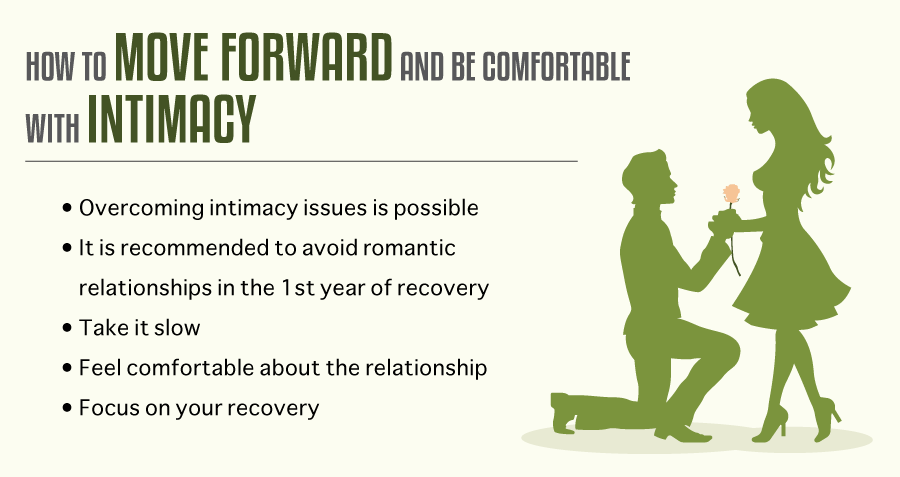 Usually a man wants sex more than a woman, but it happens the other way around. A more common problem for couples is a decrease in a woman's libido. Studies of human sexuality have shown a clear link between relationship length and a decrease in female libido. The longer the relationship lasts, the less spontaneous desire . The worst that can happen is a disgruntled mood, capriciousness, neglect and pressure from the partner who wants sex more. The partner who is less interested in sex controls the situation, and this situation imposed on both causes anger, fear and insecurity. Each attempt at intimacy is interpreted by the partner who is not interested in sex as a coercion to have sex, so that he (s) begins to reject any physical intimacy. People are distant and alienated, they are lonely and sad.
Usually a man wants sex more than a woman, but it happens the other way around. A more common problem for couples is a decrease in a woman's libido. Studies of human sexuality have shown a clear link between relationship length and a decrease in female libido. The longer the relationship lasts, the less spontaneous desire . The worst that can happen is a disgruntled mood, capriciousness, neglect and pressure from the partner who wants sex more. The partner who is less interested in sex controls the situation, and this situation imposed on both causes anger, fear and insecurity. Each attempt at intimacy is interpreted by the partner who is not interested in sex as a coercion to have sex, so that he (s) begins to reject any physical intimacy. People are distant and alienated, they are lonely and sad.
In a long-term relationship, a woman's readiness for sex is more of a decision to be open to a man's attempts to get closer . A positive decision is easier to make when a positive, caring and supportive atmosphere prevails at home . A man is expected to help around the house and in raising children. The decision is also influenced by experience gained during previous sexual contacts. Satisfying sex wants to be repeated again and again. Orgasm does not always determine a woman's sexual satisfaction. Shared intimacy, tenderness, and affection strengthens the bond, increases the sense of satisfaction and the desire to experience physical intimacy again.
A man is expected to help around the house and in raising children. The decision is also influenced by experience gained during previous sexual contacts. Satisfying sex wants to be repeated again and again. Orgasm does not always determine a woman's sexual satisfaction. Shared intimacy, tenderness, and affection strengthens the bond, increases the sense of satisfaction and the desire to experience physical intimacy again.
It is important to stop putting pressure on your partner. This is not easy, because the refusal of sex is perceived by men as a personal insult and repulsion. The partner who is less interested in sex should be given a break so that he or she can make a decision and initiate intimacy and sex themselves. However, there needs to be a consensus on how long this will take. When a wanted person realizes that he is no longer wanted, "he is no longer wanted", he himself may have a desire for intimacy and contact. You should also restore physical contact between partners . Hugs when meeting and parting, as well as stroking, create a feeling of security, since physical contact causes the production of the happiness hormone oxytocin in the brain. The partner who is less interested in sex receives confirmation that intimacy does not immediately mean sex. Men want to be seduced and wanted. For the most part, they lack it.
Hugs when meeting and parting, as well as stroking, create a feeling of security, since physical contact causes the production of the happiness hormone oxytocin in the brain. The partner who is less interested in sex receives confirmation that intimacy does not immediately mean sex. Men want to be seduced and wanted. For the most part, they lack it.
Premature ejaculation is a common sexual dysfunction in men. According to various studies, this occurs during the life of 30-40% of men. The exact cause is unknown, but an association with lower levels of serotonin in the brain messenger has been found. Stress, depression, anxiety about one's abilities, guilt, and relationship problems can be associated with this problem. Inflammation of the prostate or side effects of certain medications can also be cited as a cause.
Premature ejaculation is an orgasm that occurs one minute or less after the onset of sexual stimulation . In general terms, earlier than a man or woman would like. On average, men "hold on" for 4-8 minutes, but most men would like to extend this time. Ejaculation and orgasm usually occur at the same time. After that, the man loses his erection and further sexual intercourse is impossible. A similar situation can turn into a disorder if sex becomes less enjoyable and affects the relationship, lasts more than six months and happens almost every time.
On average, men "hold on" for 4-8 minutes, but most men would like to extend this time. Ejaculation and orgasm usually occur at the same time. After that, the man loses his erection and further sexual intercourse is impossible. A similar situation can turn into a disorder if sex becomes less enjoyable and affects the relationship, lasts more than six months and happens almost every time.
Ejaculation control allows you to better meet the needs of your partner. Lack of control over such a vital issue leads to a decrease in self-confidence and peace of mind and causes a feeling of shame. For all men, this can happen at the beginning of a sexual life, when there is still little experience, or at the beginning of a new relationship. What many don't know is that premature ejaculation can be, and still is, a condition that can be diagnosed and treated. This situation can occur in men of any age. There may be short-term sexual dysfunction, but there are also men who are always quickly aroused and reach orgasm.
Anything that interferes with "normal" sex creates big problems for men. Men suffering from rapid ejaculation are mostly tense during sex. The mere thought makes them insecure and anxious. Before sexual intercourse, fear and anxiety prevail, self-confidence disappears. During intercourse, they try and try to prevent orgasm, thereby losing the ability to enjoy. Often sexual intercourse ends in frustration and anger. Intimate avoidance is becoming more and more frequent, because who wants to fail again and again? Partners move away from each other. Overall satisfaction with sex and life decreases.
Discussing the problem is the most important step towards solving the problem. Since rapid ejaculation is a problem for couples, family therapy can be of great benefit. However, you should first undergo a medical examination, both by a family doctor and an andrologist, in order to choose an individual treatment and a therapy strategy.
Therapy helps to get a correct overview of the situation and find the rationale for starting changes. Analyzes self-perception, feelings and behavior. Helps reduce fear and anxiety for a satisfactory result. Identifies factors influencing premature ejaculation. Ejaculation delay exercises are effective if they are performed with appropriate knowledge, without unrealistic expectations, and with the support of a partner. Stop and start exercises or compression techniques are used. Weak pelvic floor muscles can contribute to the inability to delay ejaculation. This is where muscle training can help. The use of a condom reduces the sensitivity of the penis to some extent.
Analyzes self-perception, feelings and behavior. Helps reduce fear and anxiety for a satisfactory result. Identifies factors influencing premature ejaculation. Ejaculation delay exercises are effective if they are performed with appropriate knowledge, without unrealistic expectations, and with the support of a partner. Stop and start exercises or compression techniques are used. Weak pelvic floor muscles can contribute to the inability to delay ejaculation. This is where muscle training can help. The use of a condom reduces the sensitivity of the penis to some extent.
Antidepressants are also used as treatment to increase serotonin levels in the brain. Unfortunately, side effects can lead to decreased sex drive and other sexual dysfunctions. Modern treatment uses the short-acting serotonin reuptake inhibitor dapoxetine as the primary drug, which increases the time to ejaculation by 6-20 times. Comprehensive treatment usually gives good results.
One of the most important indicators of masculinity is potency and sexual performance. A man's sexual abilities are an integral part of his personality, so he perceives failures in sex as a failure in the role of a man. The most well-known male sexual dysfunction is the inability to achieve or maintain the hardness of the penis necessary for sexual intercourse. Studies show that 40% of men have had shorter or longer periods of erectile dysfunction during their lifetime. Erectile dysfunction is often the first sign of a serious health problem. Erections are most often caused by damage to the penile blood vessels caused by cardiovascular and metabolic diseases, hormonal disorders, neurological damage, and drug side effects. Lifestyle is very important. Obesity, alcohol and drug use, smoking, physical inactivity - if not lack of it - are harmful to health, including sexual function.
A man's sexual abilities are an integral part of his personality, so he perceives failures in sex as a failure in the role of a man. The most well-known male sexual dysfunction is the inability to achieve or maintain the hardness of the penis necessary for sexual intercourse. Studies show that 40% of men have had shorter or longer periods of erectile dysfunction during their lifetime. Erectile dysfunction is often the first sign of a serious health problem. Erections are most often caused by damage to the penile blood vessels caused by cardiovascular and metabolic diseases, hormonal disorders, neurological damage, and drug side effects. Lifestyle is very important. Obesity, alcohol and drug use, smoking, physical inactivity - if not lack of it - are harmful to health, including sexual function.
If you have erectile dysfunction, you should first talk to your family doctor, conduct appropriate tests and examinations in order to rule out more serious health problems. In most cases, increasing physical activity, losing weight, reducing stress, and quitting smoking and alcohol can also help. In the case of mild erectile dysfunction, active training of the pelvic floor muscles contributes to the appearance and maintenance of an erection. To see positive results, the exercises must be done for at least three months. Many men can also benefit from medication.
In the case of mild erectile dysfunction, active training of the pelvic floor muscles contributes to the appearance and maintenance of an erection. To see positive results, the exercises must be done for at least three months. Many men can also benefit from medication.
Decreased sex drive in men is usually a sign or symptom of something else. First of all, you should check your health. Then look at life more broadly and evaluate your workload, responsibilities, abilities and opportunities. The constant rush and struggle with life is not at all sexy. However, often the lack of attraction is related to the quality of the relationship. If men feel that there is little intimacy and contact in a relationship, then they cannot tune in to sex . Usually women are more eloquent and remain "winners" in quarrels, because they managed to deeply offend a man with "sharp" words. Studies have shown that the male body reacts to resentment with fear and anger. Increases blood pressure and heart rate. Fear causes attack, flight or numbness. In order not to attack, the man moves away and hides "behind the screen". In fact, a decrease in desire is a process of adaptation to adverse conditions, as a result of which sexual activity decreases or the desire for sex disappears altogether. A person is usually aware of unsuitable conditions in his life, but the decrease in attraction still occurs unconsciously.
Fear causes attack, flight or numbness. In order not to attack, the man moves away and hides "behind the screen". In fact, a decrease in desire is a process of adaptation to adverse conditions, as a result of which sexual activity decreases or the desire for sex disappears altogether. A person is usually aware of unsuitable conditions in his life, but the decrease in attraction still occurs unconsciously.
Decreased desire in men may also be a reaction to some dysfunction : weak erection, rapid or slow ejaculation, inability to achieve orgasm. Sex, which can and should be pleasurable, causes anxiety and fear, further exacerbating the dysfunction. Each sexual act leads to fear of failure, guilt and shame for their impotence. A chronic condition develops that can become a source of low self-esteem and anxiety. Sex is stopped to prevent the emergence of hard-tolerable feelings. Avoidance behavior is especially common in men with erectile dysfunction.
Problems with sex should be solved together as a couple – moving together towards a common goal. The goal may be a flexible sexual relationship that satisfies both parties. It is quite difficult to change the routine, because it is it that gives a feeling of confidence and security. And to stimulate desire and excitement, on the contrary, something new and interesting is required.
The goal may be a flexible sexual relationship that satisfies both parties. It is quite difficult to change the routine, because it is it that gives a feeling of confidence and security. And to stimulate desire and excitement, on the contrary, something new and interesting is required.
If there is a desire to change something, first of all it is necessary to talk to each other without accusations about your preferences and dislikes, which can be done otherwise than to bring freshness to the relationship.
Today, many complain about the lack of time. If sex and intimacy are considered important, then you need to find time in your “schedule” to devote it to your partner . It is also necessary to spend time together, without children, in order to feel like a man and a woman for a while.
There is a widespread belief that sexual satisfaction arises by itself, that sex is a matter of course, a simple process. In a long-term relationship, this statement is not true. The promise “I will make you happy” is impossible and cannot be trusted. In sex, one must take responsibility for one's sensual and sexual feelings . This means that if there is a desire to experience pleasure, it is necessary to do everything possible to make it happen. You can determine for yourself what is needed for a good "sexual" well-being, and when intimacy can take place.
The promise “I will make you happy” is impossible and cannot be trusted. In sex, one must take responsibility for one's sensual and sexual feelings . This means that if there is a desire to experience pleasure, it is necessary to do everything possible to make it happen. You can determine for yourself what is needed for a good "sexual" well-being, and when intimacy can take place.
If problems cannot be solved by yourself, contact the specialists. If the relationship is bad, you can get couples therapy. In individual therapy, a person develops, accepts himself, learns to understand and express his feelings and needs - he becomes himself, differentiated.
Every health worker can and is able to answer some sex-related questions and provide clarifications. You just need to have the courage to ask, and not leave the request for help to the last minute or even later. A sex counselor and therapist can share more specific advice and guidance.






